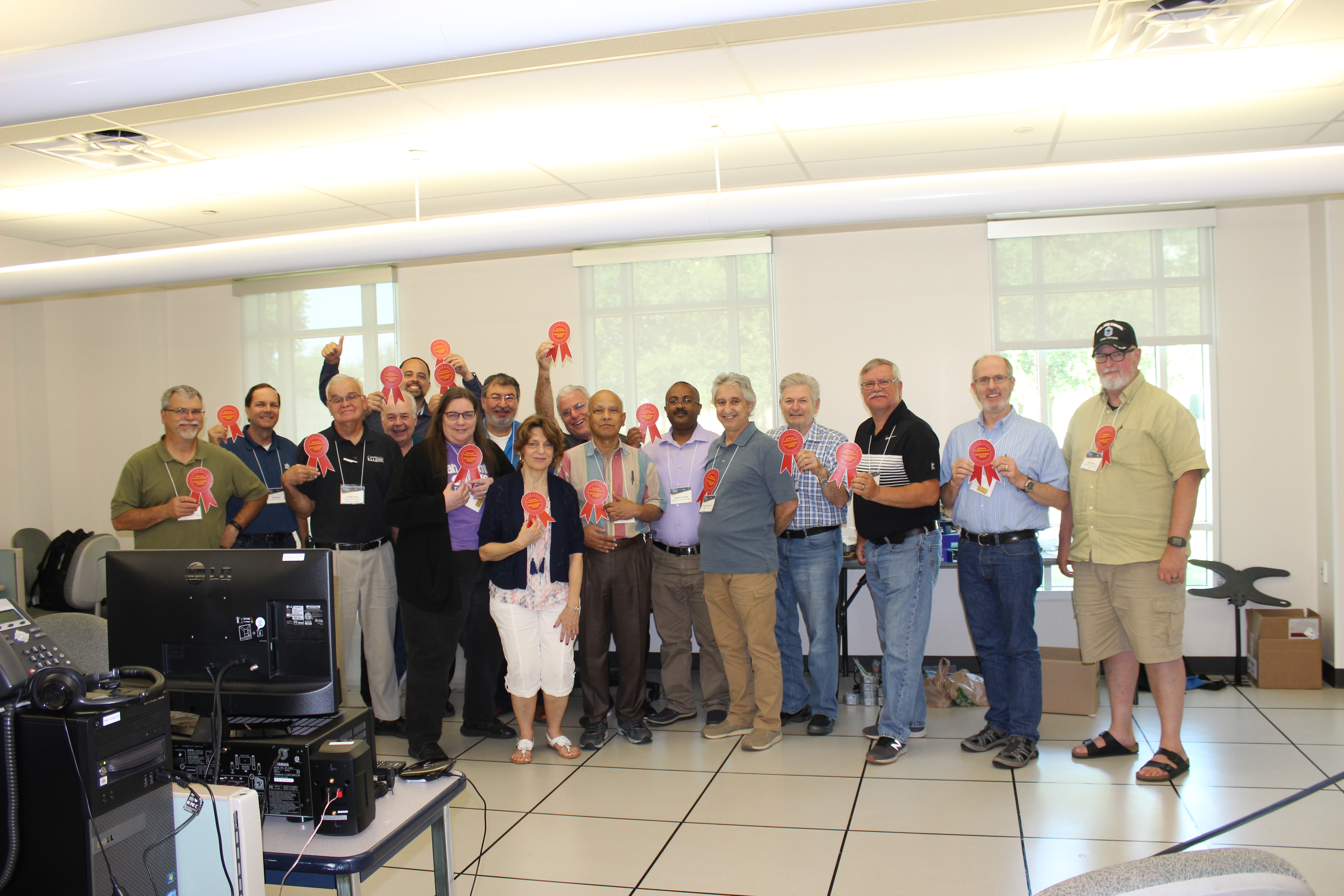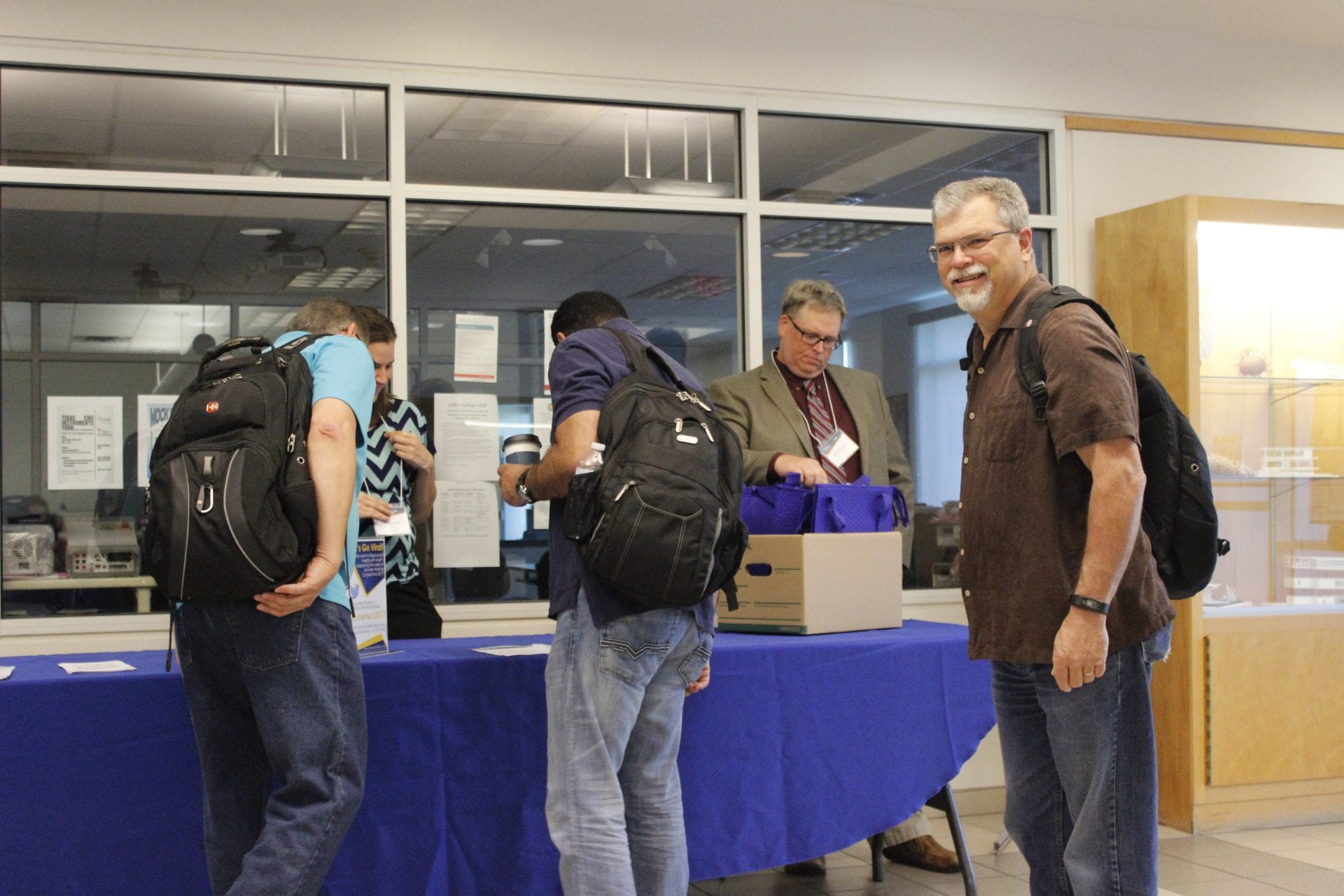CCN Focus: Brian Nelson, Lansing Community College

Brian Nelson, CIT Instructor, Lansing Community College
As a part of the National Convergence Technology Center (CTC) featured blogs, we would like to introduce to you some of our professors and instructors in the Convergence College Network (CCN) community. The CCN is a select cohort of community colleges and universities from across the country that connects IT educators with a wealth of resources to enhance their programs. In this week’s Q&A blog, we’re featuring Brian Nelson, CIT Instructor at Lansing Community College (LCC) in Lansing, MI.
What do you teach? I teach a number of different classes – I teach A+ classes from time to time; I teach an IOT class; I teach our wireless class from time to time, as well as our Network Plus class. I also teach a basic electronics class.
How long have you been a teacher? This is my 31st year. The first 27 of those years I was an adjunct, and the last four I’ve been full-time at LCC.
What sparked your interest in teaching? Actually, one Sunday my wife looking at the paper in the “want ads” and she said, “Hey, look, LCC is looking for instructors. You could do that,” so I put in an application, taught a term, and I liked it. So I just kept going.

Brian (front row, far left) standing amongst other faculty in the Internet of Things class during the 2018 Summer Working Connections.
What is the secret to successfully teaching IT to students? You have to be able to connect with them at their level. You have to know the individual students, so you know what level that is. That’s why I’m really glad that most of the classes I teach also have a lab component because that’s when you get a chance to interact with the students and know where they’re coming from and try to establish some common interest you can build on to try and get them interested in what you’re teaching.
What’s the biggest challenge teaching IT? Biggest challenge – as we’re doing labs, we don’t always have the budget to have the latest in technology. You have to be able to draw connections from what they’re doing to what’s currently going on. The challenge is teaching with the equipment that’s not state of the art right but being able to connect to that through the older equipment. It’s not that our equipment is ancient, it’s just that technology changes every year.
How has the CCN helped you? CCN has helped by giving us the opportunity to receive training, develop relationships with different people because they’re possibly experiencing some of the same challenges as you. Maybe not the same challenges, but very similar ones and it allows you to share ideas.
What is the best thing about being a part of CCN? It gives you a chance to do things that you wouldn’t ordinarily do. If I wasn’t a part of the CCN, I wouldn’t have ever pictured myself doing sessions at Hi-TEC. Ann, Mark and previous staff have always been encouraging and want you to spread your wings.
What advice would you give a new community college joining CCN? My advice would be to dive in and attend the meetings. Attend Working Connections, both summer and winter and try to establish contact with other members.

Brian arriving with all smiles at the 2017 Working Connections.
Is there anything you would like to suggest improving the CCN program? No, it seems to work well the way it’s going. There are ample opportunities for people to get to know their peers and contribute.
How do you see the IT landscape changing in the next 5 years? I think one of the biggest opportunities is that there’s going to be all this capability to generate a lot of data and know how it will get into the right hands of the people that can analyze the data. I think that IOT is going to continue to grow and the data that’s being generated, we will have to figure out what to do with it. And this will find its way back into the infrastructure of how the data gets from one place to the other and all the network that goes behind it.
Is there anything else we should know but didn’t ask about? We (LCC) really appreciate all the resources and opportunities that are made available to us. We wouldn’t receive opportunities such as this otherwise.
